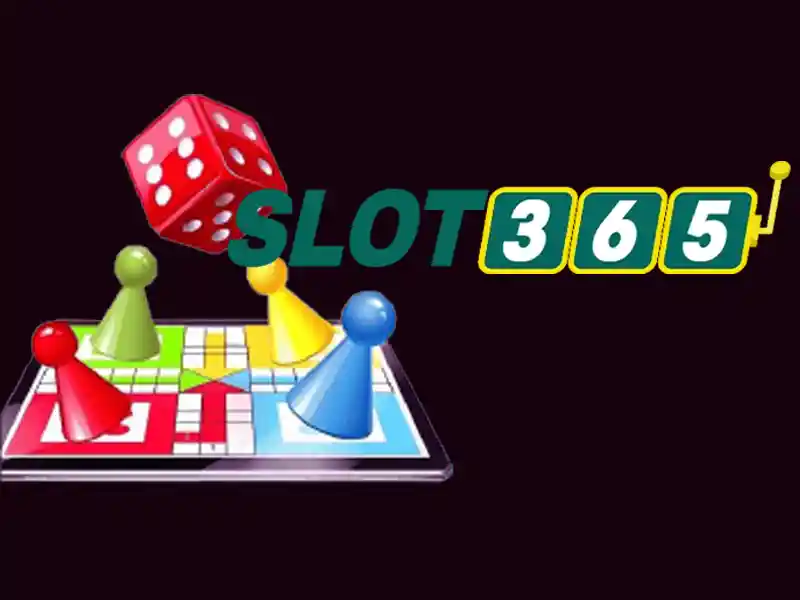slot365 – Trải nghiệm Casino Slots trực tuyến an toàn và đáng tin cậy
slot365 là một nền tảng casino trực tuyến được đánh giá cao tại thị trường Việt Nam, nơi người chơi có thể trải nghiệm hàng trăm trò chơi slots hiện đại và nhiều tùy chọn thanh toán tiện lợi. Bài viết này đi sâu vào các yếu tố quan trọng như giao diện người dùng, chất lượng trò chơi, an toàn dữ liệu, quyền lợi người chơi và các khuyến mãi nổi bật, nhằm cung cấp cho bạn cái nhìn toàn diện và đáng tin cậy để đưa ra lựa chọn thông thái khi tham gia cược trực tuyến.
Mục lục

Slot365 là gì và tại sao nên chọn
Slot365 là nền tảng cá cược trực tuyến tập trung vào game slot và casino live, được thiết kế cho người chơi Việt. Nền tảng này mang lại trải nghiệm mượt mà trên nhiều thiết bị, từ máy tính để bàn đến di động, cùng với hệ thống thanh toán đa dạng và bảo mật cao. Với sự hợp tác của các nhà cung cấp uy tín và RNG được kiểm định, slot365 cam kết mang lại sự công bằng và minh bạch cho mọi người chơi.
Giao diện và trải nghiệm người dùng
Giao diện người dùng của slot365 được tối ưu cho sự tiện dụng, với menu rõ ràng, tốc độ tải nhanh và bố cục trực quan. Người chơi dễ dàng tìm kiếm các thể loại trò chơi như slots, live casino, blackjack hay roulette. Phiên bản di động được tối ưu hóa cho chất lượng hình ảnh và hiệu suất ổn định ngay cả khi kết nối mạng yếu.

Danh mục trò chơi và chất lượng nhà cung cấp
Slot365 quy tụ danh mục phong phú và vẫn đảm bảo chất lượng thông qua hợp tác với các nhà cung cấp game danh tiếng. Người chơi có thể trải nghiệm:
- Slots 3D và jackpot tiến triển
- Live Casino với dealer thật
- Baccarat, Blackjack, Roulette
- Game quay thưởng và Bingo
Để dễ so sánh, dưới đây là bảng tổng hợp nhanh về danh mục và tính năng nổi bật:
| Danh mục trò chơi | Mô tả | Độ phổ biến |
|---|---|---|
| Slots 3D | Hiệu ứng hình ảnh sống động, nhạc nền hấp dẫn | Cao |
| Progressive Jackpot | Giải thưởng lớn có thể thay đổi cuộc sống | Rất cao |
| Live Casino | Dealer thật, trải nghiệm casino thật tại nhà | Trung bình |
| Table Games | Blackjack, Roulette, Baccarat với RNG công bằng | Cao |

An toàn thanh toán và pháp lý
Slot365 áp dụng các tiêu chuẩn bảo mật tiên tiến như mã hóa dữ liệu ở mức TLS, đảm bảo thông tin người chơi được bảo vệ. Nền tảng thường xuyên kiểm tra RNG và tuân thủ các yêu cầu pháp lý liên quan đến cá cược trực tuyến tại các khu vực hoạt động. Người chơi nên bật xác thực hai yếu tố (2FA) để tăng cường an toàn cho tài khoản.
- Thanh toán linh hoạt với nhiều phương thức phổ biến
- Rút tiền nhanh chóng khi đủ điều kiện
- Giấy phép và kiểm định từ các cơ quan uy tín
Khuyến mãi và chương trình khách hàng thân thiết
Slot365 thường xuyên triển khai các chương trình thưởng cho người chơi mới và người chơi trung thành. Các loại ưu đãi phổ biến gồm:
- Tiền thưởng chào mừng khi đăng ký và nạp lần đầu
- Vòng quay miễn phí và tích lũy điểm thưởng
- Chương trình đổi điểm và thăng cấp thành viên
Lưu ý: điều kiện và điều khoản của từng khuyến mãi có thể thay đổi. Luôn đọc kỹ điều kiện cược và hạn mức để tận dụng tối đa ưu đãi.
Hướng dẫn bắt đầu nhanh tại slot365
Để bắt đầu, làm theo các bước ngắn gọn dưới đây:
- Tới trang chủ slot365 và nhấp nút Đăng ký tài khoản
- Hoàn tất xác thực danh tính theo yêu cầu pháp lý địa phương
- Nạp tiền vào ví cược bằng phương thức bạn chọn
- Chọn trò chơi và bắt đầu trải nghiệm

Trách nhiệm chơi và hỗ trợ khách hàng
Cá cược mang lại rủi ro tài chính và người chơi nên đặt giới hạn cá nhân. slot365 cung cấp công cụ kiểm soát chi tiêu và khuyến khích người chơi nghỉ chơi khi cần. Hỗ trợ khách hàng được cung cấp 24/7 qua chat trực tiếp, email và kênh thông tin chính thức.
- Giới hạn nạp tiền và mất cân bằng tự động
- Chương trình tự nguyện nghỉ chơi (cool-off)
- Đội ngũ hỗ trợ nhanh nhẹn và giàu hiểu biết ngành
Kết luận
Slot365 mang lại trải nghiệm casino trực tuyến toàn diện với đồ họa chất lượng, danh mục trò chơi đa dạng, bảo mật cao và hệ thống khuyến mãi hấp dẫn. Tuy nhiên, người chơi nên tham gia có trách nhiệm, hiểu rõ điều kiện khuyến mãi và lựa chọn phương thức thanh toán phù hợp để tối ưu hóa trải nghiệm và an toàn tài chính.
Câu hỏi thường gặp về slot365
Câu hỏi 1: Slot365 có hợp pháp ở Việt Nam không?
Việt Nam có khung pháp lý phức tạp về cá cược trực tuyến. Slot365 hoạt động dựa trên giấy phép và chuẩn bảo mật tiêu chuẩn; người chơi nên tìm hiểu luật địa phương và chỉ tham gia khi đủ điều kiện.
Câu hỏi 2: Làm sao nhận khuyến mãi từ slot365?
Đăng ký tài khoản, nạp tiền và tham gia chương trình khuyến mãi. Luôn đọc điều kiện cược và thời hạn để tối ưu hóa lợi ích.
Câu hỏi 3: Thanh toán tại slot365 có an toàn không?
Có. Nền tảng sử dụng mã hóa TLS và tuân thủ các tiêu chuẩn bảo mật; 2FA có thể được kích hoạt để tăng bảo mật tài khoản.
Câu hỏi 4: Có hỗ trợ khách hàng không?
Có. Dịch vụ hỗ trợ khách hàng của slot365 hoạt động 24/7 qua chat trực tiếp, email và hotline.









